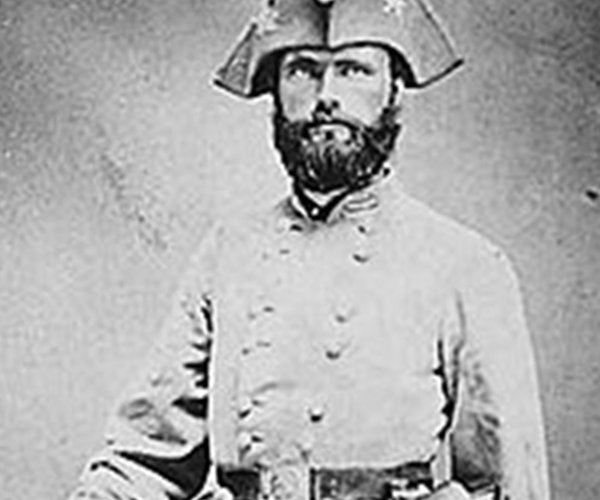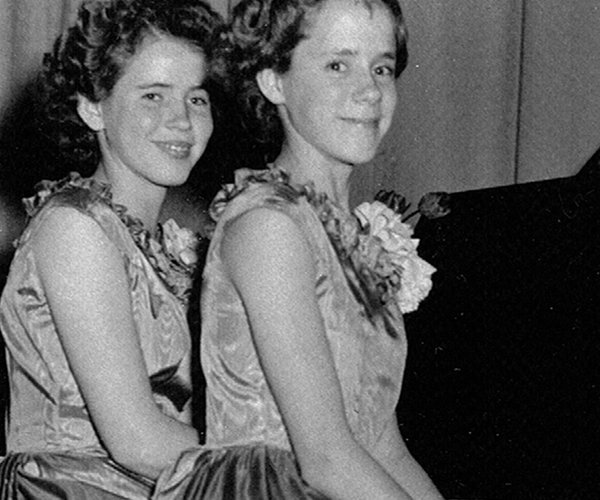Benjamin G. Franklin has led the life of his dreams. Literally. From the child who wanted to be a soldier and a game warden, to Vietnam and back to the hills of Tennessee to work with the TWRA for nearly thirty years, Franklin has done what he wanted, and enjoyed the journey.
“I was born in Johnson City in 1946 in upper East Tennessee,” Franklin told the Review. “My parents were from there. My dad’s name was Ozro Franklin, My mom was Lydia May Roberts. I’m actually related to the real Ben Franklin. My seventh great-grandfather was his brother.”
Franklin, like many of his generation, appeared not long after his father returned from the war.
“I’m a war baby, born not long after my dad got back from World War II,” Franklin shared. “By the time I was five I had lived in Texas, Alaska and Washington State. My dad was still in the military, he was career military, and we moved around a lot.
“We went to Texas first, then moved to Alaska when I was about two. Then my dad was sent to Korea. That was about 1949. My mom and I came back and lived with her mother. She lived so far back in the mountains in East Tennessee they had to pipe sunshine in.
“We lived with her while dad was in Korea, and when he came back he was stationed at Fort Lewis, Washington. We stayed there until I was five. Then he got sent back to Korea. Mom and I moved back in with my grandmother. When he came back that time he was stationed at Fort Hood, Texas. He got out of the Army in 1953, I believe, and moved back to East Tennessee.
“He bought a house between Johnson City and Elizabethton, and I went to school there. I went to high school at University High, which is on the campus of East Tennessee State University. Back then it was a state school.”
Franklin said that he was fortunate enough to have lived two childhood dreams.
“When I was a young man, from about sixth grade on, I had two goals in life. One was to be a soldier, and the other was to be a game warden. I guess I was blessed, because I got to do both,” he revealed.
“After graduation all I wanted to do was go to the Army. My parents told me I had to go to college. I went, but I didn’t do a thing. Needless to say, I flunked out. I flunked so bad they sent me a letter and said I would never get back in that college. I flunked way out,” Franklin laughed.
“So I joined the Army,” he said. “I enlisted for four years, and I took basic training at Fort Jackson, South Carolina. I completed my Advanced Individual Training at Fort Gordon Georgia, and joined a top-secret intelligence unit. You had to have the highest clearance to get into the unit. The FBI even went back to my sixth grade teacher and talked to her.
“I got cleared, and they pulled us in and asked us where we wanted to go,” Franklin continued. “Now this was in 1966, and I just assumed we were going to Vietnam. I told a friend in the unit that if we volunteered to go we might get a better assignment. There were ten of us in the unit. The orders came down, and all eight of them had orders for Vietnam, and my friend and I had orders for Fort Riley, Kansas. We were assigned to the Ninth Infantry.
“I was one of the few people who went to Vietnam on a troop ship. We sailed out of Oakland, California, and we went by The Rock, and under the Golden Gate, and headed for Southeast Asia. I’ve flown over the Golden Gate, drove over the Golden Gate, and passed under the Golden Gate,” he recalled.
Then he discovered he was in the Army.
“I spent eighteen months over there, and fifteen of that I spent out in the field,” he said. “We’d go out on operations and then come back in for a week or two, then go back out. A regular tour of duty was one year. I had four years in the Army, and I’d spent two by the time my tour was up. I got to thinking about it, and I decided what was going to happen was that they were going to send me back to the states, and ship me right back to Vietnam.
“So I volunteered to stay an extra six months, and I got a free 30-day leave, anywhere in the world.”
His initial plans were dashed by his security clearance, however.
“I wanted to tour Europe,” Franklin noted. “The Army was paying, so I was going to Europe. Then they saw I had that top security clearance, and they wouldn’t let me go. A lot of people were going AWOL in Europe, and they were afraid I knew too much, I guess. Boy, were they wrong.”
He met his wife, Linda after returning from the second tour.
“So I came back home, then went back to Vietnam. I stayed for six months, then they sent me to Fort Hood Texas. That’s where I met Miss Linda. She was teaching school in Temple, Texas. We decided to get married when I got out of the Army in 1970,” Franklin said.
“It was January, and she wanted to finish the school year. We got married in June, and I came back to East Tennessee and got a job in a factory. Before long I went and begged them to let me back into college.
“They did, and when I got back in I made good grades. I had grown up a lot. We both went to school, Linda got her Masters, and I worked second shift and went to school full time. I graduated with a BS in 1973, and Linda got a teaching job in Carter County,” Franklin informed. “We bought a little house, and I quit the factory job and concentrated on school. I started working on my Masters. In 1975 TWRA offered me a job here in DeKalb County. The only thing I lacked on my degree was my thesis, but I took the job. I never did write it. I had the job I had wanted since the sixth grade. It was my dream job. I worked until November 2006, when I retired.”
The couple have one daughter Misty Agee, married to Daniel, and one grandchild, two-year-old Cole. Misty teaches kindergarten at Smithville Elementary School.
Franklin said that the support for wildlife in DeKalb County has been exceptional.
“DeKalb County has a great wildlife tradition. A lot of people in the county hunt and fish. We’ve got Center Hill Lake, and the river below the dam. The support that we had as officers, there were basically three or four of us, Me, Mike Foster, Wayne Blair and Tony Cross, but the support we got from the county is just unbelievable. If we hadn’t had that support we wouldn’t have the wildlife we have today. Not only the people of the county, but the county officials have always been supportive” Franklin continued.
“The law enforcement agencies always backed us up, and the three judges that I worked with, Judge Ford, Vester Parsley and Butch Cook were very supportive. If they hadn’t supported us there would have been a lot more fatalities, and we wouldn’t have the wildlife we have in the county today. Especially with things like reckless driving on the lake, they would come down with some pretty hefty fines. I really appreciate the support that the judicial system has given us,” Franklin said.
Franklin has fond memories of his time on the radio as well.
“The other thing I just really had a ball with, in 1979 Ralph Vaughn called me up and wanted to start a Monday morning radio program. We enjoyed doing it, and the people really enjoyed it. Then Ralph left and Dwayne Page and I did it. We just had a ball. We did it until I retired, and it’s still going on today. We told stories on people, and I think the public really liked it. I know I did. It was fun,” he exclaimed.
“I’ll tell a story on Miss Linda that we told on the radio,” Franklin went on. “She loves strawberries. The best strawberries we ever ate came out of Florida. They have a big strawberry festival in Plant City every year, and we have some kinfolks there, so we would go visit them every year and go to the strawberry festival. We bought twenty-some flats of strawberries one year. Miss Linda ate a whole flat on the way back to Smithville. Needless to say, she made a lot of trips to the bathroom.
“I told this on the radio, and she didn’t hear it, but everywhere she’s go in town people would ask her if she was feeling okay. She didn’t know what they were talking about.”
Franklin said that wildlife has changed greatly since he came to the county.
“I went to work for the TWRA in 1975,” he told the Review. “There’s been a big change in the wildlife in DeKalb County since then. We have a lot of new animals, and we’ve lost a few animals. “The deer harvest that year was somewhere right around 80. The county had been stocked with deer sometime in the late 60s. Today the yearly harvest runs somewhere around 1,000 deer. I think the biggest year so far it was around 1800.
“We’ve got a lot of animals now we didn’t have then,” Franklin shared. “We stocked wild turkey for the first time in DeKalb County in 1985. Mike Foster, Wayne Blair and I begged the state for years to stock turkeys here. They told us we didn’t have enough big forests to support them. They finally gave us two stockings that year, and we stocked behind Lighthouse Christian Camp and on Pea Ridge. We got one more stocking the next year, then we rounded up a group of volunteers and started trapping them and moving them to other parts of the county. We ended up stocking six or seven places in the county. We even started trapping in Wilson, Bedford, Rutherford Lawrence and some other counties. They were having trouble with overpopulation, and we trapped them and ended up stocking Warren, Sequatchie, Van Buren, White, Marion and Putnam counties. We just kept on stocking. The turkey harvest in DeKalb now is somewhere around 300 birds a year.”
Franklin said that some populations are on the decline, however.
“We’ve got a lot of wildlife,” he remarked. “Some of it we don’t have the populations we used to have. We don’t have many Bobwhite quails. There’s not as many rabbits and groundhogs. Coyotes caused most of it. When I came here we didn’t have any coyotes. They started showing up in the early 80s. They migrated in. There’s an unbelievable population of them now. Another animal that migrated in was a beaver. We are eat up with beavers on the lake and the creeks. The Corps of Engineers hires people to trap beavers below the dam so the wont undermine the structure. Beavers are very destructive.
“We stocked an animal in Van Buren County that migrated here, Otters. There are a lot of Otters in the lake and the creeks. They eat a lot of fish.
He said he is pleased that bald eagles are beginning to thrive in the county as well.
“I never saw a bald eagle in this county until somewhere around 1980, and that was some that were migrating through,” Franklin said. “Today we have three active nests on Center Hill Lake that I know of. There have been two active nest for about 20 years. One of them is so big I could lie down in it.”
He said that the people of DeKalb County have been a great help.
“It’s really interesting to see how the wildlife population has exploded since 1975. There have been bear roaming through DeKalb County for at least ten years. It says something for the people of the county. There are other counties around that don’t have the judicial support and the support of the people. They don’t have the wildlife we’ve got either.
“If it wasn’t for the people of DeKalb County taking care of this stuff, we wouldn’t have it.”
Franklin said that the growth on and around the lake has been amazing, but fishing has been largely replaced by recreational boating.
“I remember the first time we put in on the lake when I came here, you could put your boat in at Sligo and drive all the way to the head waters and never see a house,” he recalled. “Now there’s houses everywhere. The amazing thing to me is, I know we have more boats on Center Hill Lake. We have more marinas. But back in ’75 up to around ’85 or so, there was more boating traffic on the lake than there is now. Especially fishing boats. It’s all big houseboats and ski boats and things like that now. The fishermen are not down there anymore. I can remember when we had Stripe in the lake, I have stood on Hurricane Bridge and counted more than 70 boats. They were all Stripe fishing. That’s completely gone, because the Stripe are gone. The TWRA said a virus got into them. The Stripe have disappeared out of Center Hill Lake. We’ve got Muskie now,” he laughed. “It’s kind of funny, but Muskie was stocked upriver and kind of ended up in the lake. The fishing is still good in Center Hill Lake. The population is still there. A lot of people can’t catch them. I can’t catch them. There are a lot of Walleye in the lake, but people don’t seem to be able to catch them. We’ve got an Elwife, which is a small shad in the lake now, and they are a deep water/open water fish. They’ve pulled the fish off the banks and into deeper water to feed on them. That’s probably one of the reasons they are harder to catch.”
The former officer told of an instance when an upheaval in the Middle East caused a lot of trouble on the lake.
“Remember when the Ayatollah Khomeini took over in Iran? Would you think there was any way that could affect a game warden in Tennessee?” Franklin asked. “It seems like a longshot, but it sure did. It affected a bunch of game wardens in Tennessee. When he took over, the leading producers of caviar were Iran and Russia. The supply was disrupted, and two enterprising men, one in Chattanooga and one in New York City, decided paddlefish eggs are basically the same thing as sturgeon eggs, so they started making caviar out of paddlefish eggs. It was illegal to net paddlefish in Center Hill Lake, but they were getting $25 a pound for raw paddlefish eggs, so there were people netting, legal or not. In one year we wrote 129 netting tickets. We confiscated a few vehicles, some boats, and I don’t know how many feet of net. We put some people in jail, too. It went on for 6-7 years. We wrote a lot of citations, and confiscated a lot of equipment. It was all because of the Ayatollah.”
He said putting premiums on wildlife always causes a problem.
“Any time you put a price on wildlife, you’re going to destroy that wildlife,” he opined. “The paddlefish are just one example. We had an undercover operation in East Tennessee once, and caught more than 100 people killing black bears illegally for their gall bladders. They are used as an aphrodisiac in Asia. These little box turtles we have around the lake, we had a guy a few years ago giving $10 each for them. He was shipping them to Japan and selling them for over $100 each. They were buying them for pets. Deer horns are supposed to be an aphrodisiac when they are in velvet. No matter what, if you put a price on it, somebody’s going to poach it.”
Franklin said that while he enjoyed his job, there was a grisly side.
“In my 31 years and nine months as a TWRA officer, I either assisted with or found 53 bodies,” he said. “I found one after I retired. Some were car wrecks, some were out in the woods. A lot were drownings on the lake. Once I found two in one week. It was a sad part of the job. The worst part was when a kid drowned, and most of it was uncalled for, to be honest. I retired in 2006, and I found one more body after that, while I was fishing.
“The other rough part was marine fires,” he continued. “They had us doing just about anything. I think I went to seven or eight marine fires. Probably the two worst were at Cove Hollow and Edgar Evins. I believe the damage at Cove Hollow in 2005 was more than $10 million. A marine fire is kind of different. About the only thing you can do is let them burn out. You make sure everybody is safe, and try to get the boats out that are not already on fire. It’s very dangerous, because all those houseboats have a propane tank on them. I know the tanks have safety valves, but I was always afraid one of them was going to blow up. And the marinas all have gas tanks. The gas is not bad for blowing up. The fumes will blow up, but gas just kind of burns. The gas didn’t scare me as bad as the propane did.”
He said he met many people on the lake, including one vice president.
“I got to meet a lot of people on Center Hill Lake. The country stars all came to the lake. Alan Jackson did three concerts, Al Gore still has a boat on Center Hill. When Gore was vice president, the secret service didn’t have any boats, so they’d call us up and have us furnish vessels. We ended up helping guard him. We knew the country a lot better than the secret service, so they’d always call us to help set everything up.”
He said that one area that has exploded in recent years is the Caney Fork below Center Hill Dam.
“The river below the dam just blows my mind to be honest,” Franklin admitted. “In 1975, you might find 20-30 trout fisherman down there. In probably the late 90s people decided to start floating the river. From the dam all the way to Carthage. There is a six-mile stretch of the river in DeKalb County. Now it looks like there are more boats on it than on the lake on any given day. They’ve about loved the river to death, to be honest. Several places rent kayaks and canoes, but last Fourth of July, officers checked 560 boats in that six-mile stretch of river. It’s a madhouse. I’m surprised we don’t have a lot more drownings. When the dam starts to generate, that water gets to rising and falling, and it’s cold. It’s normally about 40 degrees coming out of the dam. It blows my mind that we don’t have more than we do. Always has.”
He said that he could not thank the people of DeKalb enough for all their help over the years.
“I can’t emphasize how much all of us officers appreciated how support DeKalb County has given us over the years. I appreciate the rescue squad for all the help they have given. We’ve had churches and businesses, like DeKalb Market, or Elmus Johnson when he had the store on Highway 56, I could stop by and tell them I needed some food or drinks for rescue workers, they’d just give it to me. It made my job a whole lot easier, I’ll tell you that,” he said.
Franklin said that retirement has been kind to him.
“I got to live a very interesting life,” he said. “My retirement has been fantastic. Miss Linda and I both retired about the same time, and we started traveling. We’ve enjoyed our retirement. We’ve been in all 50 states and seven foreign countries since we retired, either hunting, fishing or sightseeing.”
He couple do not sleep outdoors, however.
“We don’t camp,” Franklin shared. “I’ll tell you about camping. I spent two years in the army in a tent, sleeping on the ground. I spent 31 years and nine months as a game warden laying out on the lake or in the woods at night on the ground. My idea of camping now is the Holiday Inn with a Jacuzzi. That’s roughing it for me now.
“What I miss more than anything is getting out and seeing the people. I don’t miss writing tickets, I don’t miss a lot of other stuff, but I miss the people,” Franklin concluded.





